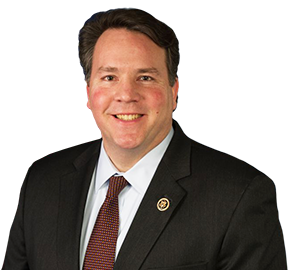CHARLESTON — Members of West Virginia’s congressional delegation are wary of President Joe Biden’s $2 trillion plan to rebuild the nation’s infrastructure.
But where West Virginia’s lawmakers in Washington see a boondoggle, environmental and clean energy advocates see a boon.
The plan Biden announced Wednesday in Pittsburgh would seek to transform America’s energy framework in an effort to create millions of jobs, improve housing and transportation infrastructure and embrace energy efficiency measures.
Sen. Shelley Moore Capito, R-W.Va., dismissed it as a partisan proposal that goes too far.
“I am committed to working together to craft a robust surface transportation reauthorization bill and other infrastructure legislation,” Capito said in a statement. “However, that’s not what the president is proposing today. Instead, President Biden’s so-called ‘jobs’ proposal is a clear attempt to transform the economy by advancing progressive priorities in an unprecedented way.”
Biden pledged his plan would eliminate lead pipes and service lines in the country’s drinking water systems; put hundreds of thousands of people to work laying thousands of miles of transmission lines and capping hundreds of thousands of orphan oil and gas wells and abandoned mines; and bring affordable, reliable high-speed broadband to every American.
The president urged Congress to make what he called an overdue $621 billion investment in roads, bridges, rail, ports, airports and transit systems. That allotment would cover grant and incentive programs for state and local governments and the private sector to build a national network of 500,000 electric vehicle chargers by 2030.
Biden also called for $50 billion in infrastructure resilience investments, noting that in 2020, the United States endured 22 separate billion-dollar weather and climate disasters that cost $95 billion in damages to homes, businesses and public infrastructure.
The president’s proposal would eliminate tax preferences for fossil fuels as part of his aim for the U.S. to achieve net-zero greenhouse gas emissions by 2050.
Capito predicted the proposal would “aggressively drive down” traditional energy usage and eliminate well-paying jobs in West Virginia and across the country.
Sen. Joe Manchin, D-W.Va., could not be reached for comment.
Manchin’s support is critical for Biden’s agenda in a Senate evenly divided among Democrats and Republicans. West Virginia’s senior senator long has called for major investments in infrastructure upgrades. Though he opposes ending the filibuster to get it, Manchin said last month he would support a multitrillion-dollar infrastructure package funded by a corporate tax rate increase.
Biden’s plan would increase the corporate tax rate to 28%. That rate was lowered from 35% to 21% in 2017.
Rep. Alex X. Mooney, R-W.Va., said in a statement that a corporate tax rate hike would hurt the economy. Mooney observed that of the roughly $2 trillion that Biden proposes spending, only $115 billion is set aside for modernizing the bridges and roads in most dire need of repair.
“This level of liberal spending is irresponsible,” Mooney said.
Rep. Carol Miller, R-W.Va., predicted Biden’s proposal would cause thousands of companies to ship jobs overseas.
“The Biden Administration’s partisan $2 trillion ‘infrastructure’ plan is a trojan horse for radical Green New Deal policies that would destroy our energy industry, endanger Americans’ livelihoods and undermine our economy,” Miller said in a statement. “At a time when American workers need our help the most, this will be the biggest economic mistake in a generation.”
Biden’s plan would support large-scale carbon sequestration efforts and expand a tax credit for technologies that capture carbon dioxide emissions from sources such as coal-fired power plants and reuse the carbon dioxide or store it underground in geologic formations so it will not enter the atmosphere.
The White House said the plan is in line with the Storing CO2 And Lowering Emissions, or SCALE Act, which would support the buildout of infrastructure to transport carbon dioxide from sites of capture to locations where it can be either used in manufacturing or sequestered underground.
Capito and Manchin joined nine other Democratic and Republican senators to announce their support for the legislation last month.
Rep. David B. McKinley, R-W.Va., the top-ranking Republican on the House Subcommittee on Environment and Climate Change, joined two Democrats and a fellow Republican to introduce the SCALE Act late in December. He supports a House version of the bill.
“Advancing carbon capture — and building out the infrastructure to transport, utilize and store the carbon dioxide — is essential to reducing our emissions,” McKinley said in a statement. “I’m encouraged that it is included in the package but still have many concerns about the package as a whole.”
McKinley’s office did not respond to a request for the congressman to elaborate on his concerns.
Environmentalists hailed Biden’s proposal.
“The President’s plan presents a monumental opportunity to rebuild and transform our state’s economy and infrastructure in a way that meets the climate challenge and provides good jobs in our communities now and for the future,” West Virginia Rivers Coalition Executive Director Angie Rosser said in a statement. “We need our congressional members to make sure West Virginia is at the forefront of this plan.”
“We applaud the president’s proposal to invest in the cleanup of abandoned oil, gas and mine sites while also emphasizing the development of next-generation industries to be sited in our most distressed communities, which will work to decarbonize our economy,” said Jim Probst, West Virginia Citizen Climate Lobby state coordinator.
Robin Blakeman, organizer at the Ohio Valley Environmental Coalition, said major infrastructure investments can push West Virginia along a path to economic recovery in the twin shadows of COVID-19 and coal’s downturn.
“The president’s plan to invest in cleaning up and reclaiming abandoned mine lands is a welcome step forward,” Blakeman said in a statement. “(It) responds to the years of advocacy from our communities and can be the foundation for the equitable, inclusive economy we can build here at home.”

